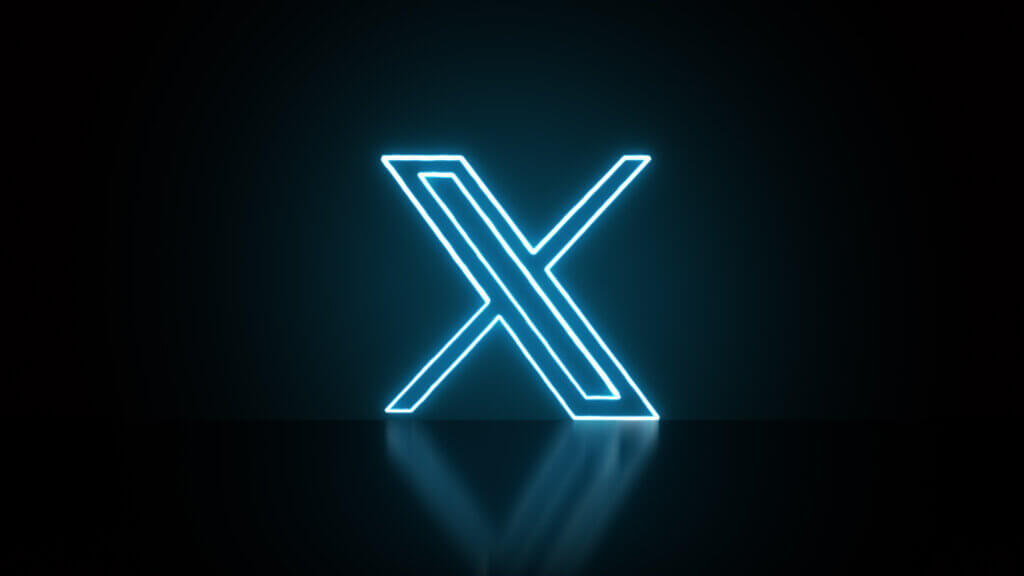There has been a lot of shake-up in the AI search space over the past few weeks, with DeepSeek soaring to the top of app charts and drawing attention as a serious competitor to ChatGPT. As businesses and marketers explore how these tools shape the future of search, understanding their core differences is more important than ever.
ChatGPT and DeepSeek take radically different approaches to AI-powered search. Knowing how they process information can help your brand stay ahead in digital discovery and make smarter decisions about content optimization.
Table of Contents
1. Search Accuracy and Relevance
Accuracy in AI search depends on how well a model understands user intent and retrieves relevant information. ChatGPT is designed to interpret nuanced or ambiguous queries, making it ideal for conversational AI, customer interactions, and long-form content. It processes information based on its pre-trained knowledge, ensuring consistency and coherence in responses.
On the other hand, DeepSeek emphasizes real-time search, constantly pulling data from the web to provide up-to-date information. This makes it better suited for fact-heavy queries, trending topics, and rapidly changing data, though sometimes at the cost of relevance.
 ChatGPT
ChatGPT
- Interprets search queries with strong contextual awareness, making it ideal for complex or ambiguous queries.
- Uses pre-trained knowledge to provide consistent and reliable responses.
- Keeps answers focused on the intent rather than overloading with excessive details.
 DeepSeek
DeepSeek
- Conducts real-time searches, making it better for current events, product availability, and fast-changing data.
- Pulls from multiple sources, which can enhance factual accuracy but may dilute relevance.
- More effective for fact-based searches where the latest information is required.
Optimization Tip: Brands should use ChatGPT for evergreen content and in-depth brand messaging, while optimizing DeepSeek content for fast-moving industry trends, real-time updates, and data-heavy queries.
2. Response Quality and Depth
AI search engines structure responses differently depending on their core functionality. ChatGPT is optimized for detailed, engaging explanations, making it ideal for thought leadership, storytelling, and customer engagement. Its responses are rich, adaptable, and well-structured, ensuring that brands can tailor content to various audience needs. DeepSeek, on the other hand, focuses on concise, fact-based answers, prioritizing speed and precision over depth. It works well for technical questions, product specs, and data-driven responses, but lacks the narrative depth that makes ChatGPT more engaging.
 ChatGPT
ChatGPT
- Generates detailed and well-structured responses, making it ideal for explainer content and brand storytelling.
- Adapts to various tones and formats, allowing brands to craft personalized and engaging messaging.
- Works well for creative and strategic responses, such as campaign narratives, blog content, and customer engagement.
 DeepSeek
DeepSeek
- Provides concise, to-the-point answers, making it more effective for data-driven content.
- Best for technical problem-solving, where accuracy and efficiency matter most.
- Prefers structured content, requiring brands to create clear, scannable information for optimal search performance.
Optimization Tip: Brands should use ChatGPT for thought leadership, educational content, and deep brand narratives while focusing DeepSeek content on short, direct answers to high-intent search queries.
3. Information Retrieval: Pre-Trained vs. Real-Time Search
Understanding how AI retrieves information is key to optimizing content for search. ChatGPT operates primarily on pre-trained data, making it reliable for evergreen content, FAQs, and brand messaging. This allows for consistent, instant responses but limits its ability to pull in real-time updates unless browsing is enabled. DeepSeek, however, specializes in real-time search, retrieving information directly from the web. This makes it ideal for news, stock updates, and industry trends, but also means its responses can sometimes include conflicting or unverified information from multiple sources.
 ChatGPT
ChatGPT
- Uses a pre-trained knowledge model, making it ideal for evergreen and foundational content.
- Generates instant responses without relying on external searches, ensuring message consistency.
- Can integrate web browsing in select modes, but does not depend on real-time data by default.
 DeepSeek
DeepSeek
- Retrieves real-time search results, making it more effective for breaking news, stock updates, and evolving industry trends.
- Pulls multiple sources per query, which enhances accuracy but may introduce conflicting information.
- Works best for up-to-the-minute content that requires frequent updates.
Optimization Tip: Brands should prioritize ChatGPT for structured, long-form content and DeepSeek for fast-changing, time-sensitive queries that require live updates.
4. Citations and Source Transparency
Trust and credibility are essential in AI search, and citations play a major role in building both. ChatGPT provides citations in select versions, such as ChatGPT with Bing search, but its standard model primarily generates internally synthesized responses based on pre-existing knowledge. This makes it a strong choice for brand-controlled content where accuracy is maintained through internal validation. DeepSeek, however, includes citations by default, making it better suited for fact-checking, research-heavy industries, and compliance-driven content. While this enhances credibility, it can also result in overloaded responses filled with references, which may require additional refinement for a cohesive user experience.
 ChatGPT
ChatGPT
- Provides citations in select versions, such as ChatGPT with Bing search and enterprise integrations.
- Generates internally synthesized responses, reducing reliance on external sources.
- Best suited for authoritative content where brands control the source of information.
 DeepSeek
DeepSeek
- Regularly includes citations, pulling from multiple sources in real-time.
- Helps with fact-checking and credibility, making it effective for news, research, and compliance-heavy industries.
- May return overly source-heavy responses, requiring careful structuring of branded content.
Optimization Tip: Brands should use ChatGPT for owned, branded content while leveraging DeepSeek for citation-backed, research-driven content that requires external verification.
5. Speed and Efficiency
Response speed is a key factor in user experience and AI search performance. ChatGPT is designed for instant conversational responses, making it ideal for chatbots, customer service, and quick interactions. Its ability to process pre-trained data instantly ensures a smooth and engaging experience. DeepSeek, however, fetches real-time information, which adds a slight delay but increases accuracy for time-sensitive queries. This trade-off means that ChatGPT is better for fast, fluid interactions, while DeepSeek is better suited for complex, research-heavy queries that require current data.
 ChatGPT
ChatGPT
- Delivers instant responses, making it perfect for chatbots, customer support, and interactive content.
- Generates cohesive, well-paced answers, improving overall engagement.
- Works best in scenarios where response speed is more critical than real-time accuracy.
 DeepSeek
DeepSeek
- Takes longer due to real-time search and multi-source aggregation.
- More effective for complex, data-driven queries where accuracy outweighs speed.
- Works best for fact-based searches that require dynamic, up-to-date information.
Optimization Tip: Brands should use ChatGPT for conversational AI experiences and DeepSeek for fact-based queries that require real-time verification, even if response times are slower.
6. Strengths and Weaknesses
Brands must understand the strengths and limitations of each AI search engine to optimize their strategies effectively.
| Platform | Strengths | Weaknesses |
ChatGPT
|
• Understands intent well, making it great for brand messaging and long-form content • Fast responses, ideal for customer service and interactive AI • Creative and adaptable, great for content creation and brand storytelling • Smooth user experience, works well for chatbots and customer interactions • Strong data privacy, compliant with business security standards |
• Lacks real-time search, so it cannot retrieve breaking news or live updates • No default citations, requiring fact-checking for accuracy • Can generate incorrect information, needing manual verification • Expensive at scale, with GPT-4 access requiring a paid plan • Limited customization, as self-hosting is not an option |
DeepSeek
|
• Real-time search, perfect for news, trends, and live data • Provides citations, improving trust for research and fact-checking • Cost-effective and open-source, making it budget-friendly • Accurate in technical fields, strong for math, coding, and logic-based queries • Customizable for enterprise use, allowing self-hosting |
• Slower responses, as it retrieves and processes live results • Less engaging, with robotic, fact-heavy answers • Privacy concerns, with uncertainty around data sharing in China • Overloads with data, sometimes returning conflicting or excessive information • Content restrictions, as some topics may be censored |
Final Thoughts: Where Should Brands Focus Their AI Search Optimization?
AI search is reshaping how brands optimize content, but success depends on understanding where each platform excels. ChatGPT is best for brand storytelling, customer engagement, and creative content, offering fast, structured responses that enhance user experience. DeepSeek is ideal for real-time updates, citation-backed research, and fact-driven queries, making it a strong choice for brands needing live data and verification.
For a balanced AI search strategy, brands should optimize ChatGPT for evergreen content and interactive experiences while leveraging DeepSeek for dynamic, up-to-date search visibility. Combining both ensures brands remain competitive across different AI search behaviors, capturing both context-driven and real-time search opportunities.
The best AI search strategy is not about choosing one platform over the other but about optimizing for both in the right context.
- ChatGPT is the best choice for brand storytelling, thought leadership, and interactive customer experiences.
- DeepSeek is the best choice for live data retrieval, citation-backed research, and fact-based decision-making.
Which AI search engine aligns best with your brand’s strategy? Talk to our experts to optimize for both conversational and real-time search, ensuring maximum visibility and engagement.
How to Increase Brand Visibility on ChatGPT
AI-driven search is transforming digital visibility. Learn how to position your brand at the top of ChatGPT and other AI search engines.







